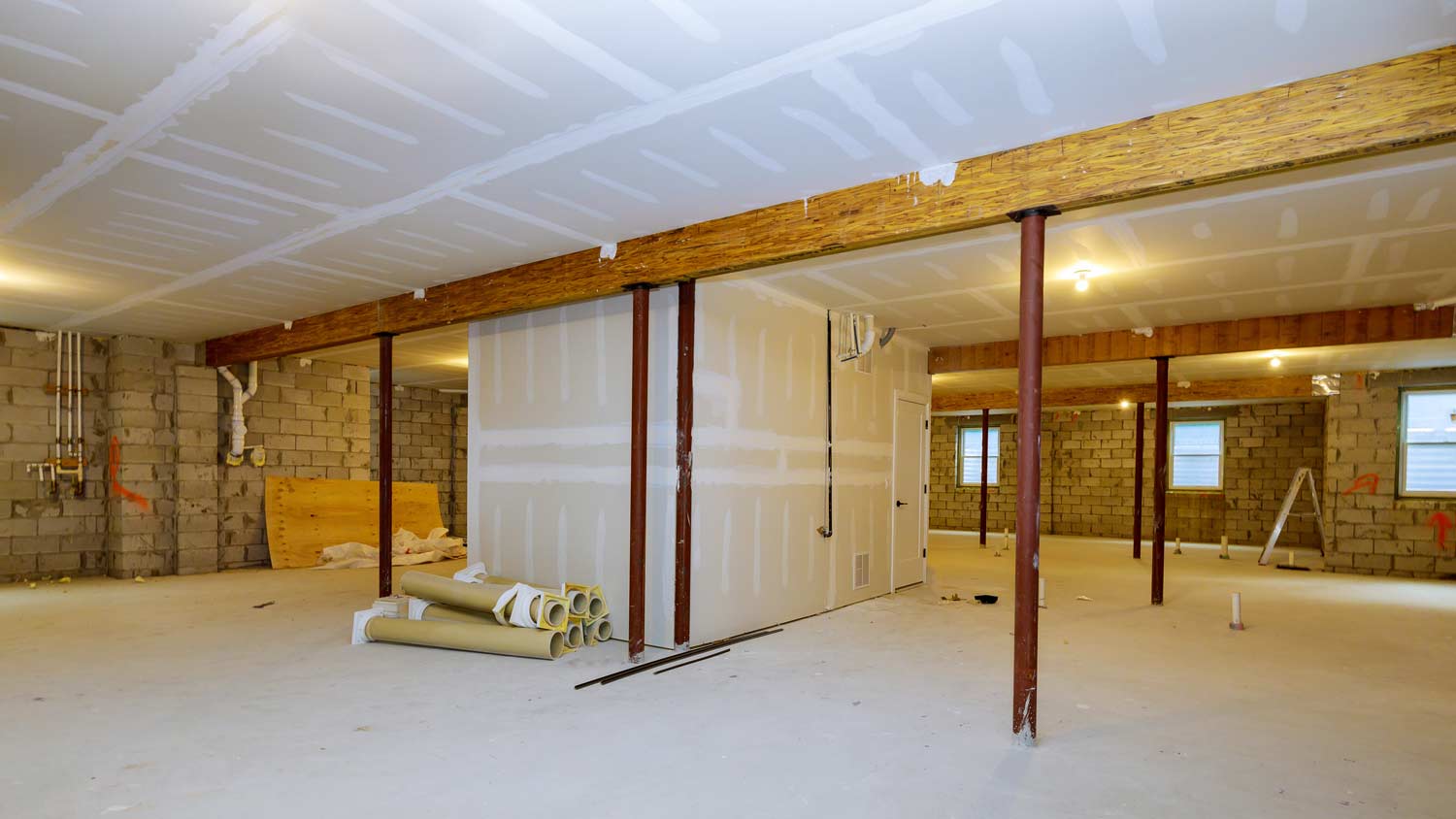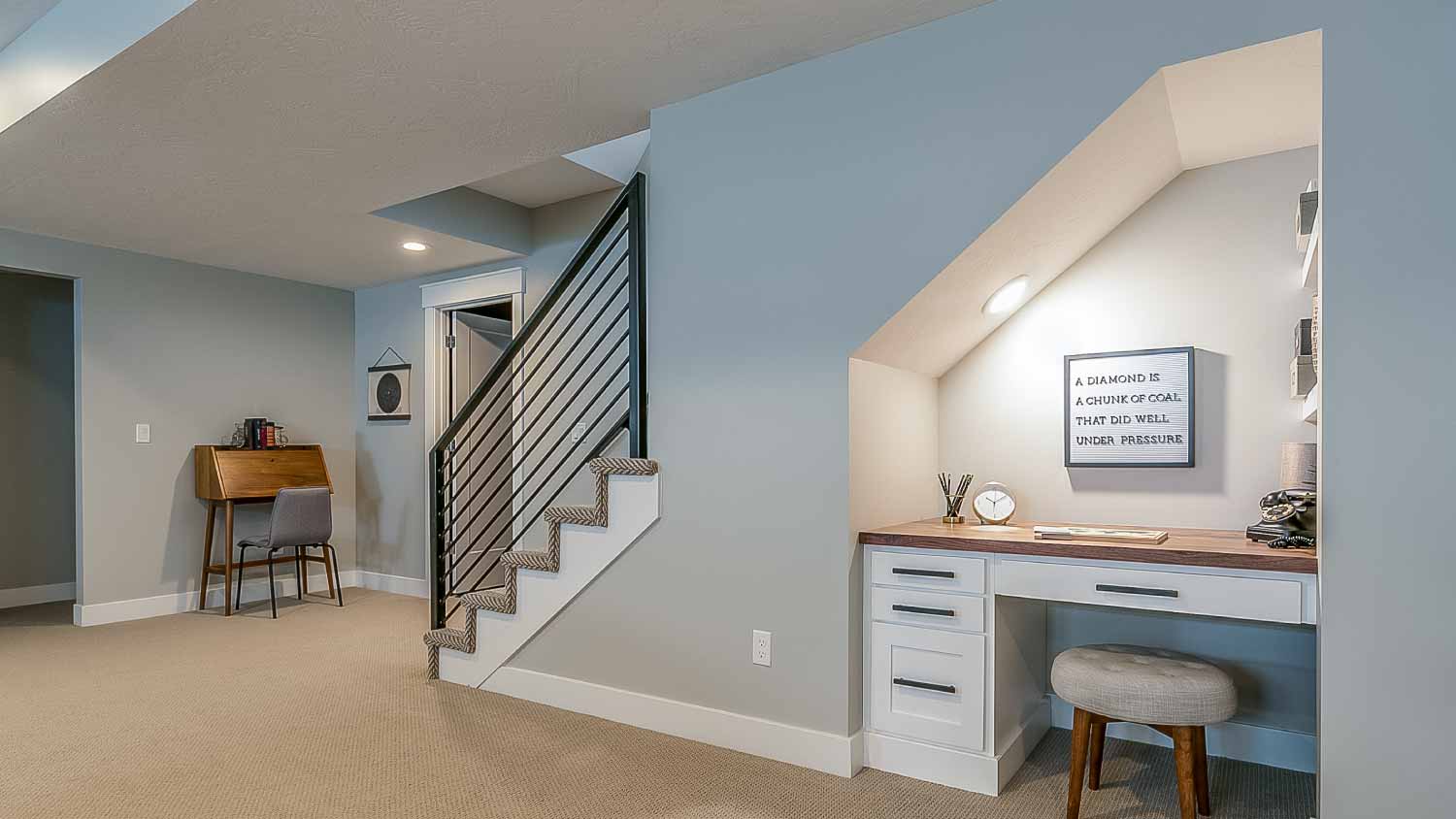
The cost of installing a wine cellar varies based on square footage, the type of wine cellar or wine cave, materials used, where it is located in the property, and where you live. Use this guide to find how much your wine cellar will cost.
Plan this project when the temperature drops


Contractors are often less busy in the fall and winter, leading to more availability and faster completion times.
You may not be able to waterproof your basement in winter, so consider doing so before finishing your basement.
Spring and summer are contractors’ busy seasons, so projects may take longer in warmer weather.
Finishing your basement can add valuable living space to your home, but it can be a time-consuming project. Knowing the best time of year to finish a basement can shorten your project timeline, reduce delays, and even cut costs. Learn the best time to finish a basement and the pros and cons of tackling this project during each season.
While it’s possible to turn your basement into living space all year round, fall and winter are often the best seasons for this project. Contractors are often much less busy during the colder seasons, and since finishing a basement is an indoor job, it can be done even in the middle of winter. Since you won’t be competing for your contractors’ time, you may be able to complete the job faster, have fewer delays in getting materials, and may even pay less overall for the project.

If you’re trying to decide between a finished and an unfinished basement and the right time to take on the project, consider the following factors that can affect the timeline.
If your project is extensive or involved, you’ll want to hire a pro to finish your basement who has enough time to complete the job. Spring and summer can be especially busy for contractors, so you may have trouble finding someone who can take on the job.
There are only a few drawbacks to finishing a basement in the winter. You may not be able to waterproof your foundation in freezing temperatures, so that might be a good project to complete before the thermometer drops. Expanding window wells and adding egress windows or doors may also be more difficult in winter, so talk to your contractor to see if that will affect your project’s timing.
Installing plumbing, electrical, and other utilities may require coordination with multiple pros. During a busy season, it may be more difficult to get the work you need done on schedule, so you may be better off waiting until the weather cools down.
Materials may be more difficult to get during the spring and summer, when it seems like everyone is doing home projects. Waiting until the winter can mean easier availability and maybe even lower costs.
You can finish a basement any time of year, but you’ll be competing with a lot of other remodeling jobs in the spring and summer. Warmer months also tend to be busier and more active, so undertaking a big construction project may be extra disruptive when you have more going on.
Finishing a basement costs an average of $15,000 to $75,000, depending on your basement size, the scope of the project, materials, permits, and labor costs. Finishing or adding a bedroom to a basement can add value to your home, so you may recoup your initial investment when it comes time to sell.
You can save on labor costs by finishing your basement yourself, but it’s a big project that involves ensuring building codes are followed and utility work is done properly. Unless you have experience with this kind of construction, your best bet is to hire a local basement finishing contractor. A pro will obtain any necessary permits to finish a basement, follow all local building codes, ensure utilities are safely installed, and leave you with top-quality results.
From average costs to expert advice, get all the answers you need to get your job done.

The cost of installing a wine cellar varies based on square footage, the type of wine cellar or wine cave, materials used, where it is located in the property, and where you live. Use this guide to find how much your wine cellar will cost.

A basement remodel can often cost as much as adding another room. However, homeowners should consider the usefulness and ROI of a remodel.

The first step toward a cozy finished basement is adding its framing. How much does it cost to frame a basement? Let's break down the numbers.

Finishing a basement isn’t always ideal. Learn about the differences between a finished and unfinished basement and which is right for you.

Finishing a basement can add huge value to your life at home. Here's what you need to know before you dive into a basement remodel.

Need to know how long it takes to finish a basement? Find out the average timeline and some factors to consider to get a good estimate for your project.